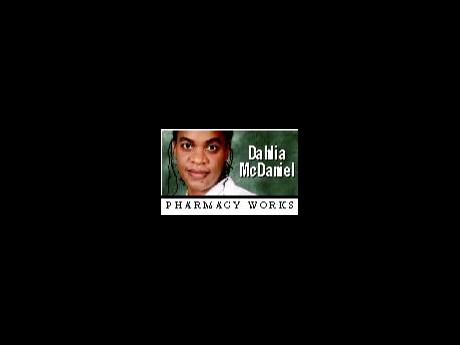That rattling, gurgling cough
If you have made it this far into the cold and flu season without being hit, consider yourself fortunate. We are still in the season in which we are prone to get the virus that causes sneezing, runny, stuffy nose, fever, persistent cough, sore throat, headache and more.
Last time, our focus was on decongestants which help relieve a stuffy nose. Even more annoying than stuffy nose is a persistent, dry cough or an embarrassing 'chesty' cough.
Coughing is actually a natural, healthy response to lung- and air-passage irritants. Repeated coughing, due to the common cold or flu, can be distressing and may irritate the air passages even more than before. The best way to control the annoying cough is to treat its cause.
Chesty, productive cough
The cough which has a rattling, gurgling, bubbling sound is a productive cough, caused by excessive mucous production. Antihistamines like chlorpheniramine and dyphenhydramine, and decongestants like pseudoephedrine, can remove the cause of this cough.
Mucous or phlegm may become so thick and dry that it cannot be brought up by coughing. Bacterial infections then develop when the mucous is allowed to just sit there. Expectorant cough syrups containing ingredients like guaifenesin or ammonium chloride (expectorants) are believed to loosen mucous, allowing it to be brought up by coughing. This belief has attracted much debate since evidence is limited.
When productive cough is troublesome, doctors prescribe mucolytics like bromhexine which thin the mucous or phlegm, making it easier for the lungs to get rid of it.
Quieting the cough
With dry (non-productive) cough, the airways are irritated but there is no mucous. Antihistamines are usually given for mild coughs, especially in children. Sugar-based cough drops or syrups, honey, licorice or glycerine are demulcents which soothe a dry irritating cough. A hot drink of lime and honey also works well, soothing the back of the throat.
Cough suppressants, also known as antitussives, decrease the urge to cough. Dextromethorphan (usually called DM as a suffix of cough syrup names) is a popular cough suppressant. Anaesthetic cough sprays and lozenges contain local anaesthetic benzocaine which numbs the cough nerves in the throat.
Do not treat yourself with cough medicine for more than two weeks. If you have fever with persistent cough, a history of asthma or bronchitis, or a productive cough with coloured mucous, you should see the doctor.
Due to the questionable effectiveness of over-the-counter cough syrups versus the risk they may pose in young children, it is advisable to give young ones mild treatments for coughs, like glycerol, lime with honey or simple linctus.
If you have high blood pressure, be careful with cough syrups. They sometimes contain decongestants which raise blood pressure. Avoid all sugar-based cough remedies if you have diabetes. Read labels carefully to avoid ingredients you shouldn't have, and ask your pharmacist.
Dahlia McDaniel is a pharmacist and final-year doctoral candidate in public health at the University of London; email: yourhealth@gleanerjm.com.

